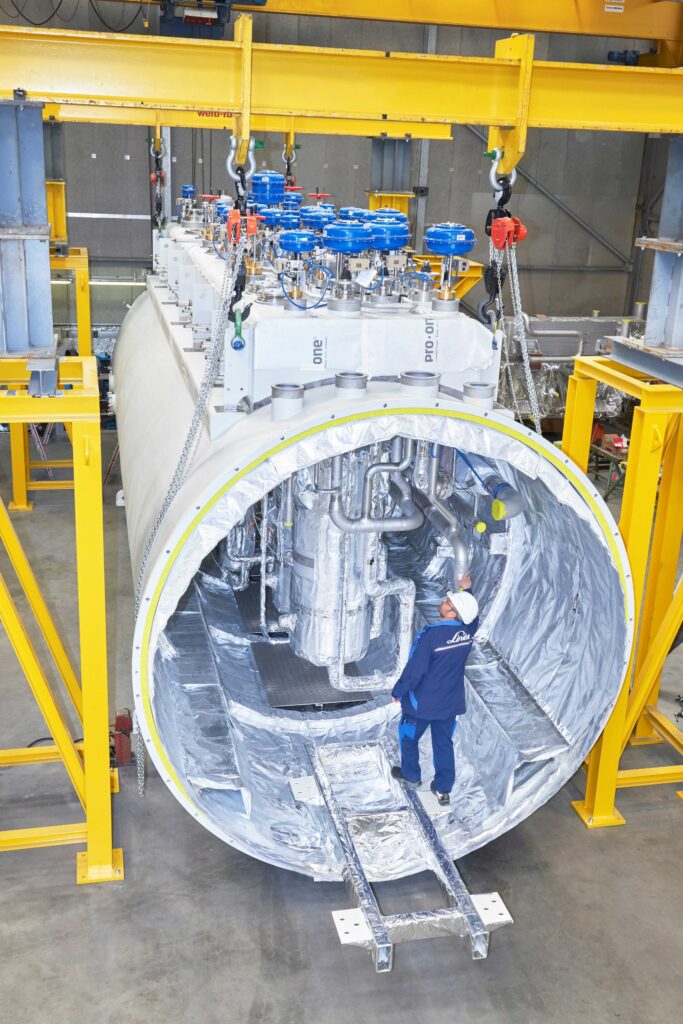Linde Engineering (Pullach, Germany) has signed an agreement with PsiQuantum (Palo Alto, Calif.) to deliver a cryogenic cooling plant for the world’s first utility-scale quantum computer in Brisbane, Queensland, Australia.
The plant will be one of the largest cryogenic cooling plants ever built for the specific use of operating a quantum computer. It will cool the cryogenic cabinets containing PsiQuantum’s new Omega chipset and other systems. Quantum computing is expected to drive advancements in healthcare, energy, material design, and encryption while the project in Brisbane further develops Australia’s quantum ecosystem across academia, commercial partnerships and supply chains.

A Linde expert checking a coldbox, similar size to the application in Brisbane. Copyright: Linde
The large-scale cryogenic cooling infrastructure will achieve the required 4 Kelvin range (-269 °C, -452 °F). Linde Engineering is one of very few companies worldwide with the required expertise – having installed more than 500 cryogenic plants in total. These are serving high-tech industries such as semiconductors, magnetic resonance imagining and supporting scientific applications like particle accelerators and fusion research.
“We are proud to help PsiQuantum realize their ambitious vision for quantum computing. This collaboration demonstrates how combined expertise can drive advancements in technology and innovation,” says John van der Velden, Senior Vice President Global Sales & Technology, Linde Engineering. “This technology will help design solutions to address some of the most pressing challenges faced by society today.”
“Photons don’t feel to heat the way matter-based qubits do. Our systems can run 100 times warmer – and we appreciate collaborating with a world-class firm like Linde Engineering to deliver industrial-scale systems with proven technology,” said Jeremy O’Brien, CEO and co-founder of PsiQuantum. “This is a fundamental scaling advantage and a key reason we are able to move rapidly toward utility-scale quantum computing.”
The cryogenic plant will cool tens of thousands of PsiQuantum’s new Omega photonic chips housed in cabinets that will be networked together with standard optical fiber. Quantum computers use special bits called qubits, which, unlike classical bits, can be in a coherent superposition of multiple states simultaneously. This enables multiple simultaneous computations and thus solve problems much faster than classical computers. Qubits are susceptible to interactions with their environment, such as heat or electromagnetic radiation and cannot function reliably without appropriate cooling, which maintains qubits in a state where they preserve their quantum mechanical properties.